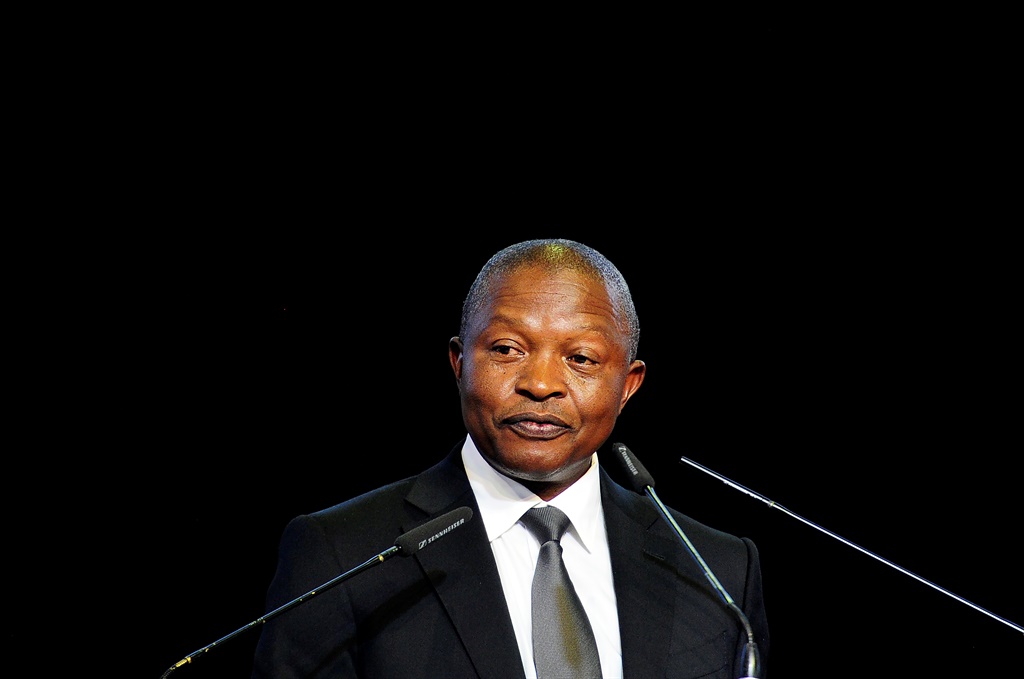
Whether politicians are referring to scientific "Western" poisoning or a mystical bewitching, we deserve to know more about allegations of poisoning including who was responsible and the motive for their actions, writes Mandy Wiener.
As Public Protector Busisiwe Mkhwebane's offensive went into overdrive this week, she dropped a word that has become suspiciously common in the South African political lexicon over the past few years: poisoning.
Initially it was reported that she had personally been poisoned. She then corrected that "misreporting", explaining that she was actually being accused of poisoning her ex-husband. Mkhwebane placed this within context saying that she has been personally targeted with "threats of arrest for money laundering" and that she may be investigated for the poisoning since she "started investigating the so-called SARS rogue unit".
One would expect a dramatic Shakespearean concept like "poisoning" to draw some serious attention and get the public, media and authorities sitting up and making significant noise. But the mention of poisoning has become a convenient device to distract – it's sufficiently vague and mysterious enough not to require further detail and explanation. As a colleague remarked on Twitter, "poisoning is the new intelligent report".
In the past, a politician would invoke mention of the Special Browse Mole Report or a groundcover intelligence document to stir the pot and introduce speculation to the public discourse. They would do this to position themselves as the victim of a political conspiracy by a faction aimed at undermining their credibility and office. These days, it's enough to say you've been the subject of a poisoning.
To demonstrate just how prevalent this concept is, both former president Jacob Zuma and Deputy President David Mabuza have apparently fallen victim to poisoning.
Zuma has repeatedly made reference to the fact that he was poisoned in June 2014. "I was poisoned and almost died just because South Africa joined Brics [the Brazil, Russia, India, China and South Africa grouping] under my leadership. They said I was going to destroy the country," the ex-president was quoted as saying. He added that some people wanted him dead and he "went through a challenging time". "I nearly died because they did poison me. They managed to find someone close to me and I know it. I was dead. They don't believe how I survived. Not one dose‚ because the person who was poisoning me was so innocent‚ so close. Three doses. Even scientists can't believe why I did not die."
It was suspected that his estranged wife Nompumelelo Ntuli-Zuma was behind it and she was kicked out of Nkandla by then minister of state security David Mahlobo, but she has never been charged or prosecuted despite several letters from her lawyers to the NPA. No results of any toxicology reports or any medical records have ever been made public about Zuma's supposed poisoning, which means all we have to go on is his word.
Similarly, Mabuza has also repeatedly spoken about how he was poisoned at his 2015 birthday party in Bushbuckridge when he was premier of Mpumalanga. He was quoted as saying that he had "let my guard down and accepted food". At the time, Mabuza disappeared from the public eye for several months while he was receiving treatment at a Johannesburg hospital. News24 quoted a source saying that it was only when he was taken to Russia for treatment that Mabuza's health improved.
He hitched a lift on the Gupta family's private jet to get there but he was so ill he can barely remember the trip. "But they just couldn't get him better. They were hysterical. He only got better when he went to Russia," said the source. Mabuza reportedly spent two weeks in Russia in October last year, receiving further medical treatment for the poisoning.
Zuma also reportedly received treatment in Russia. In 2017, when speaking in Pongola in KZN, he said, "I was poisoned by witches who were trying to finish me off in broad daylight. If I didn't have friends overseas‚ today you would be saying there was a man from Nkandla but he died."
'Radical economic transformation' behind poisonings?
There are others too. ANC secretary-general Ace Magashule told mourners at the Parys funeral of Free State head of police, roads and transport Sandile Msibi that his ally had been poisoned. He suggested this had been done by enemies of radical economic transformation because "once you touch the nerve of white monopoly capital, you will never survive". There are uncorroborated reports too that KZN Premier Willies Mchunu was a victim of ricin poisoning.
Despite the apparent prevalence of poisoning amongst the political elite, there's been little to no fuss about it in the security and law enforcement structures. Consider that when Sergei Skripal, a former Russian military officer and double agent and his daughter Yulia Skripal were poisoned in Salisbury with a Novichok nerve agent, it was big news in the UK. Arrests were made and diplomats were expelled.
By comparison in South Africa, there have been no arrests and no public disclosure aside from politicians making unsupported public comments. Even the Institute of Race Relations found no reports of security breaches being logged by the Presidential Protection Services which looks after presidential security.
The only incident which we do have actual factual evidence to go on, is the 2010 death of Mpumalanga politician and whistle blower James Nkambule. At the time the Sunday Times published his post-mortem results which showed evidence of organophosphate poisoning.
A spiritual, mystical reference?
With no firm evidence of any of the other poisonings, it is apt to consider that the definition of "poisoning" be further interrogated. Some have suggested that perhaps it is not the Western literal definition of the word that is being referred to by Mkhwebane, Zuma and Mabuza. It may be a spiritual, mystical reference – Zuma attributed his poisoning to "witches" when he spoke in Pongola.
Writing in the City Press last year, foodie and anthropologist Anna Trapido delved into this definition.
"In traditional southern African cosmology, poisoning is often thought of as a form of 'vengeance magic', which can be translated as isidliso (isiZulu) or sejeso (in Sesotho). Such poisons are called up by those with magical powers and can wreak both physical harm and social misfortune.
Generally, isidliso/sejeso will be directed to a particular individual such that many people may eat an adulterated birthday lunch but only the person for whom the poison is intended will get sick. Unlike scientific poisoning (where accidental poisoning can occur) intent is essential for ill effects of vengeance magic to manifest. Many traditional healers will argue that such poisons are not detectable using Western allopathic medical techniques."
Trapido points out that victims may be seeking out foreign doctors in Russia because in order to survive, they must "engage a powerful healer of their own to repel the poison" and the distance and exotic skills abroad will overpower the initial bewitcher.
Whether the politicians are referring to scientific "Western" poisoning or a mystical bewitching, we deserve to know more about these incidents including who was responsible and the motive for their actions. We also need full disclosure as to why treatment in Russia is the only remedy, instead of the cloaked secrecy surrounding the apparent attacks on our elected leaders.
We are left with unanswered questions including whether or not a foreign power is meddling in domestic politics and doubting the efficiency of our state security structures. In a country where commissions of inquiry are appointed left, right and centre into all manner of problems, there's no reason why we shouldn't have a panel looking into this matter of such considerable national importance.
- Wiener is a specialist reporter for News24.
** Want to respond to the columnist? Send your letter or article to voices@news24.com with your name, profile picture, contact details and location. We encourage a diversity of voices and views in our readers' submissions and reserve the right not to publish any and all submissions received.
Disclaimer: News24 encourages freedom of speech and the expression of diverse views.The views of columnists published on News24 are therefore their own and do not necessarily represent the views of News24.




 Publications
Publications
 Partners
Partners























